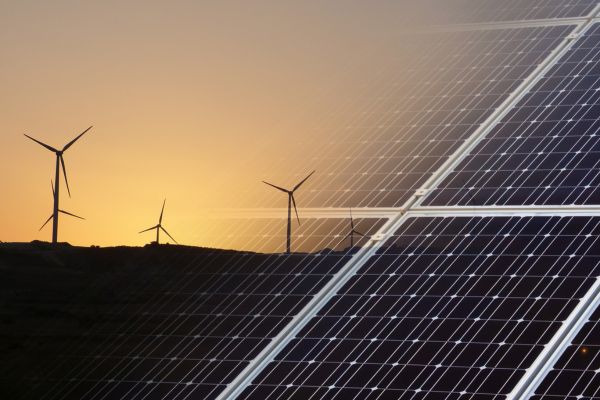Prime Minister Requests Citizens Not to Use Air Conditioners Below 26 Degrees; Encourages the Use of Rooftop Solar Power Systems for Household Activities.
Prime Minister Requests Citizens Not to Use Air Conditioners Below 26 Degrees Celsius?
Recently, the Prime Minister of the Government of Vietnam issued Directive 20/CT-TTg in 2023 to enhance electricity savings until 2025 and in subsequent years.
The use of air conditioners at temperatures of 26 degrees Celsius or higher is one of the Prime Minister's requirements for households to implement electricity-saving measures.
To be specific, according to sub-item c Section 1 of Directive 20/CT-TTg in 2023 as follows:
1. Ministries, ministerial-level agencies, agencies under the Government, People’s Committees of provinces and centrally-run cities, businesses and social-political organizations implement several solutions as follows:
...
- Frequent implementation of electricity-saving and efficient behaviors at home, such as: turning off electrical devices when leaving the room, completely cutting off the power if not using electrical devices; only using air conditioners when absolutely necessary and at appropriate temperature settings (cooling policies from 26 degrees Celsius or higher); prioritizing the purchase of high-efficiency electrical devices or electrical devices with high-efficiency energy labels; minimizing the use of incandescent bulbs.
...
Thus, according to the content mentioned above, the Prime Minister directs families to only use air conditioners (air conditioners) when necessary and at appropriate levels (26 degrees Celsius or higher).

Prime Minister Requests Citizens Not to Use Air Conditioners Below 26 Degrees Celsius? Encourages using rooftop solar power for household activities? (Image from the Internet)
Encourages Using Rooftop Solar Power for Household Activities?
According to the content mentioned in sub-item c Section 1 of Directive 20/CT-TTg in 2023, the electricity-saving measures at households are directed as follows:
1. Ministries, ministerial-level agencies, agencies under the Government, People’s Committees of provinces and centrally-run cities, businesses and social-political organizations implement several solutions as follows:
...
c) Implement electricity savings at households:
- Use electrical equipment with energy labels according to Decision No. 04/2017/QD-TTg dated March 9, 2017 of the Prime Minister of the Government of Vietnam, which stipulates the list of vehicles and equipment that must have energy labels, applying the minimum energy efficiency standards and the implementation roadmap.
- Frequent implementation of electricity-saving and efficient behaviors at home, such as: turning off electrical devices when leaving the room, completely cutting off the power if not using electrical devices; only using air conditioners when absolutely necessary and at appropriate temperature settings (cooling policies from 26 degrees Celsius or higher); prioritizing the purchase of high-efficiency electrical devices or electrical devices with high-efficiency energy labels; minimizing the use of incandescent bulbs.
- Encourage the installation and use of rooftop solar power systems for self-use to meet onsite demand and solar water heating systems.
Thus, according to the directive, the Prime Minister encourages citizens and households to install and use rooftop solar power systems for self-use to meet onsite demand and solar water heating systems.
Goals of Directive 20/CT-TTg 2023 on Enhancing Electricity Savings Until 2025 and Subsequent Years
According to Directive 20/CT-TTg in 2023 on enhancing electricity savings until 2025 and subsequent years, regarding the electricity situation from 2023-2025, the Prime Minister of the Government of Vietnam stated the following perspective:
Regarding challenges:
- Hydrological conditions ensuring the electricity generation levels of hydropower plants on river systems are trending unfavorably due to climate change;
- Increased dependence on imported primary energy sources;
- The capacity of wind, solar, and other renewable energy sources remains limited;
- Thermal power faces many difficulties in expanding investments, whereas the demand for electricity continues to grow at a high rate, averaging about 8.5% per year, higher than the economic growth rate.
Requirements and set goals:
To address the above-mentioned challenges, the Prime Minister of the Government of Vietnam requires:
- During the 2023 - 2025 period and in subsequent years, the entire country must strive to save at least 2.0% of total electricity consumption annually.
- Reduce electricity losses across the entire power system to below 6% by 2025.
- Reduce peak load capacity of the national power system through the implementation of demand-side management (DSM) programs and demand response (DR) measures, at least 1,500 MW by 2025.
- Strive to have 50% of office buildings and 50% of residential houses using self-generated, self-consumed rooftop solar power (servicing onsite consumption, not selling electricity to the national grid) by 2030.
- Aim for 100% of street lighting to use LED lights by the end of 2025.
LawNet